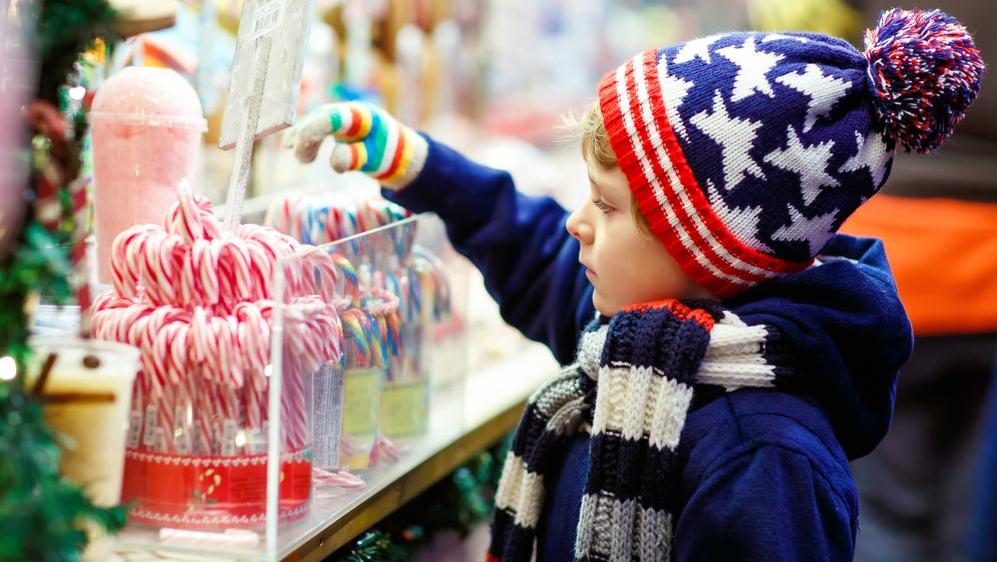Why Is National Candy Cane Day On December 26?
Candy Canes are a classic Christmas candy. Why wait until after Christmas to celebrate them?
The holiday season is essentially sweets season. Everything from cookies to chocolates are boxed up as stocking stuffers, given away on Christmas—that's why it seems strange that the candy cane, the most quintessential holiday candy of them all, has its own national celebration the day after Christmas.
Yes, National Candy Cane Day falls on December 26 each year. But why do the peppermint-flavored treats so often hung from Christmas tree branches and stuffed in stockings not get highlighted until after the day they're most associated with? The answer might be simpler than you'd think.
A brief history of candy canes
There's a bit of lore surrounding the invention of candy canes and their earliest origins. The History Channel notes there are two popular stories explaining how the candy cane was invented.
Some say the curved sweets were invented in 1670, when the choirmaster at a cathedral in Germany handed out sugar sticks to young choir boys to keep them quiet during a special ceremony. Church leaders complained that candy was not appropriate during such a solemn occasion, so the choirmaster bent the sticks to make them appear more like a staff, a religious symbol.
Alternatively, Susan Benjamin, author of Sweet as Sin: The Unwrapped Story of How Candy Became America's Pleasure, told the History Channel that it is just as likely German people added a hook to the candy sticks so they could hang them on the Christmas tree, just as they did with cookies, fruits, and other treats.
Despite their contested history, candy canes are cemented in the holiday season like melted sugar fused to your teeth. That's why, much like the many other food holidays celebrated in the U.S., candy canes get a whole day to be honored for their contributions to Christmas iconography.
Why is National Candy Cane Day after Christmas?
Much like the history of candy canes, there is no agreed upon reason that the treat's national holiday comes after Christmas.
However, considering the widely held tradition of hanging canes on the Christmas tree and in stockings, it makes sense that people wouldn't actually unwrap and eat the treats until Christmas is over. Plus, the candies are most likely to be sold at a discount the day after Christmas, and that combined with a national day of recognition can spur sales—surely a boon to whatever entity lobbied to establish the holiday in the first place.
With that logic, you might wonder why National Candy Cane Day wouldn't just be December 25, so everyone could enjoy them sooner. But if you were establishing a food holiday, would you really want to compete with Christmas? Just think of the people whose birthdays fall on December 25. It's not easy competing with the birth of an entire religion's almighty savior, now is it?
So, though we aren't completely sure why, it's probably for the best that candy canes are celebrated on December 26. It gives the season one last sweet hurrah before the new year hits.
